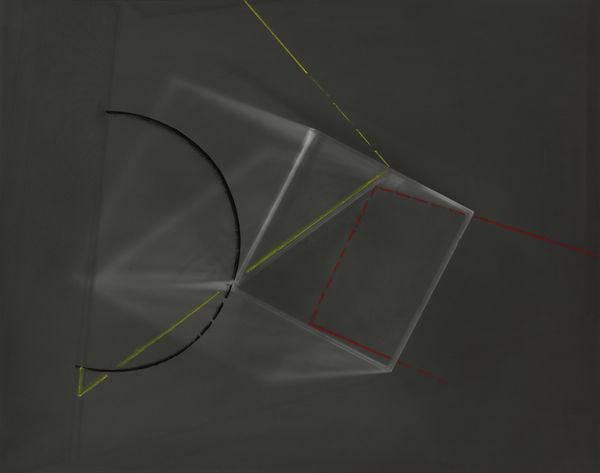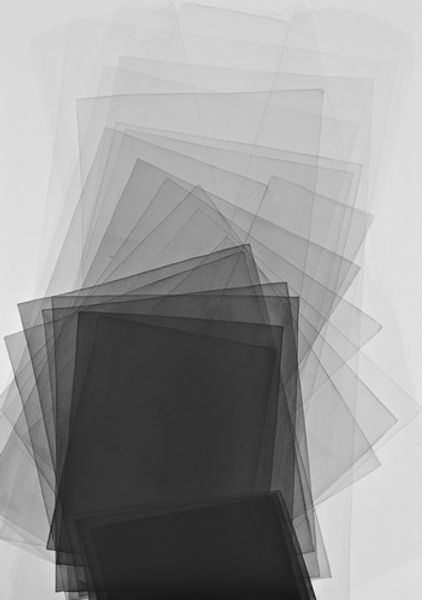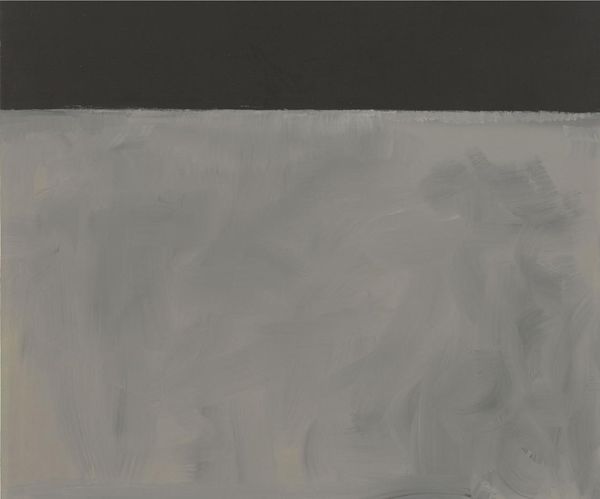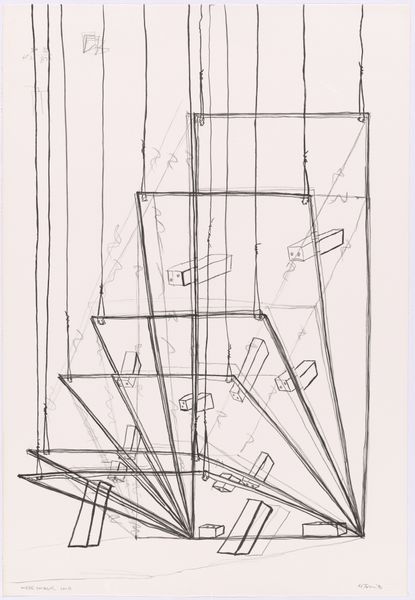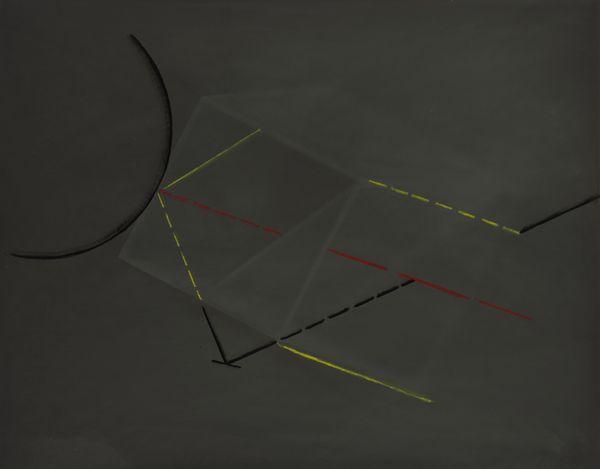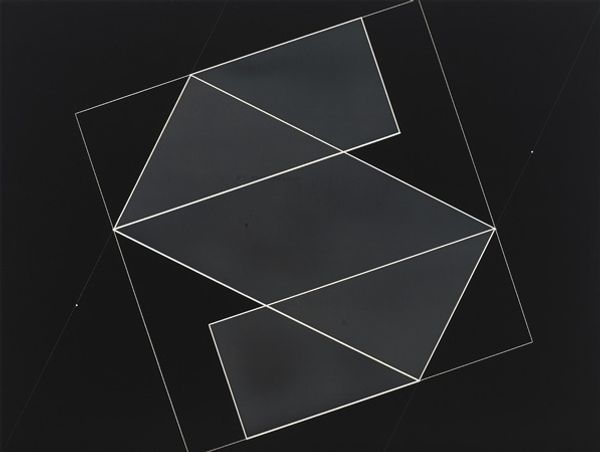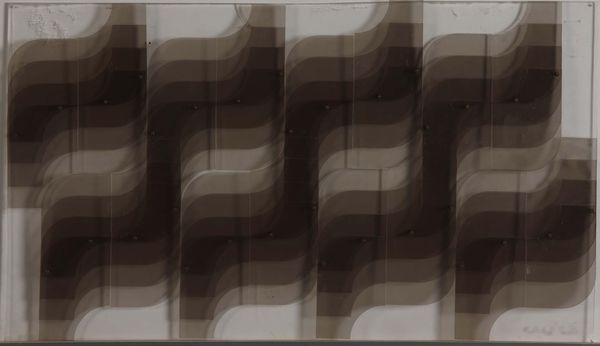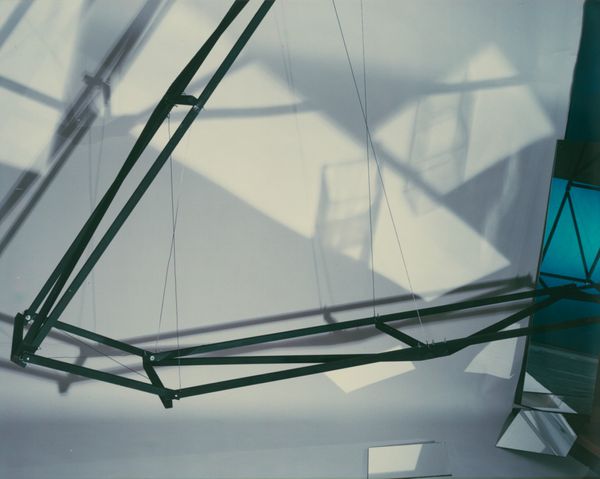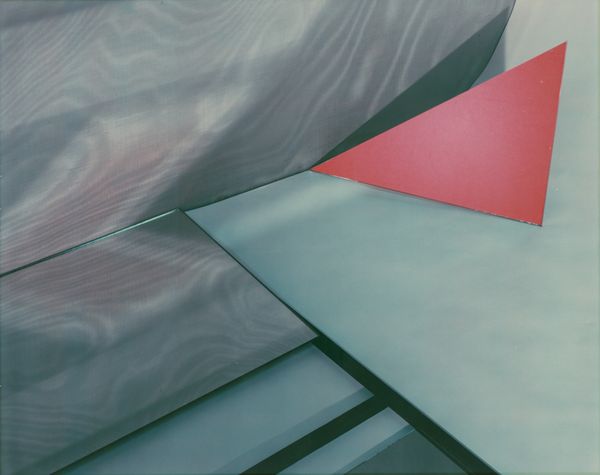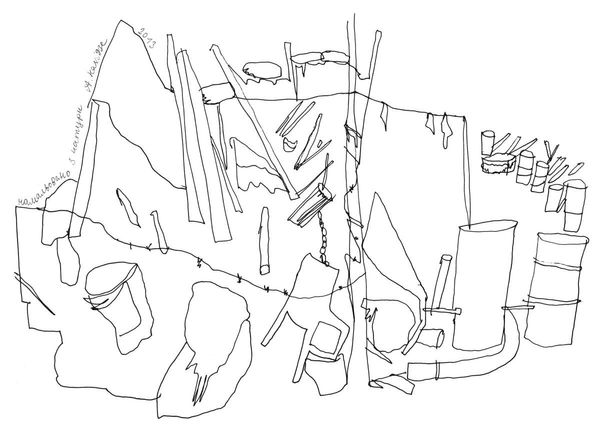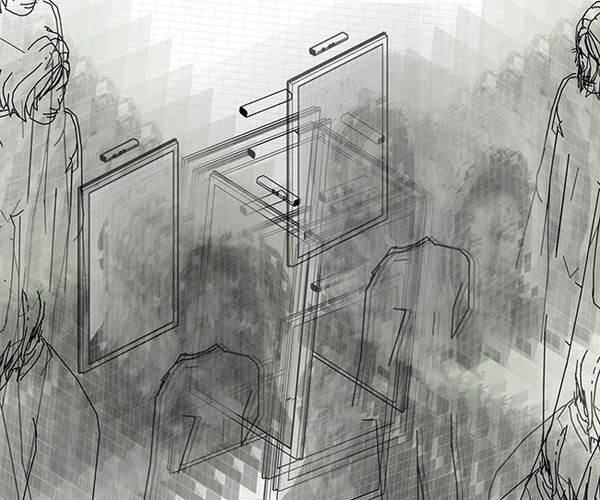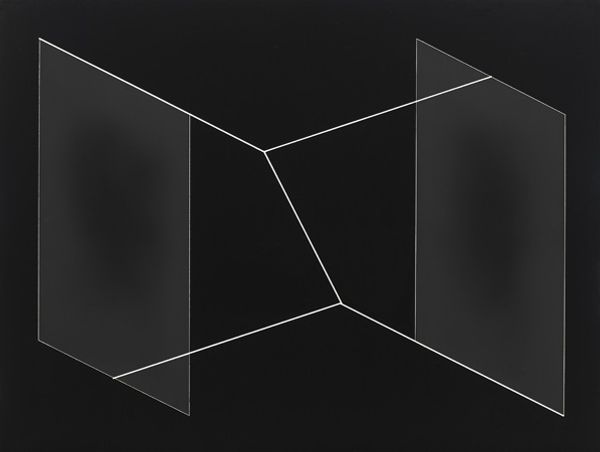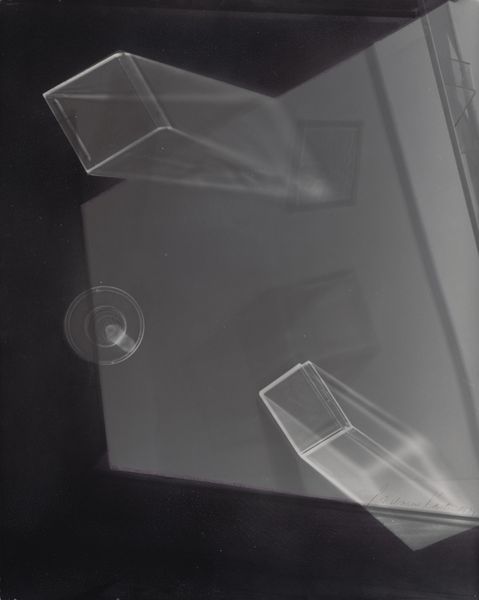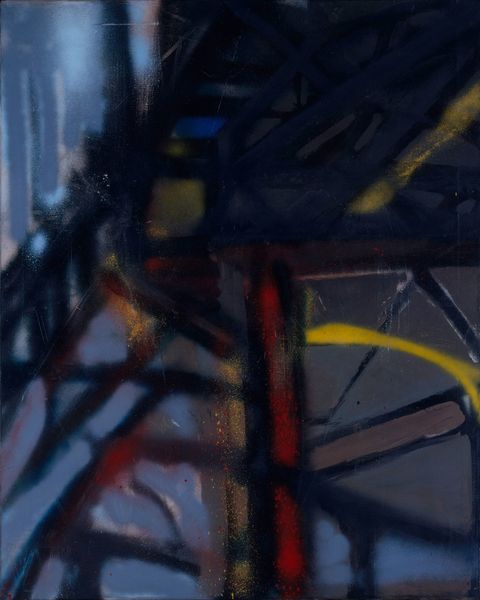
photography
#
light-and-space
#
conceptual-art
#
minimalism
#
photography
#
geometric
#
abstraction
Dimensions: image/sheet: 40.64 × 50.8 cm (16 × 20 in.)
Copyright: National Gallery of Art: CC0 1.0
Editor: This is an Untitled photograph by Barbara Kasten, from 1979. It’s all in grayscale, showing geometric forms… a play of shadows. It feels very architectural, almost like a blueprint, but flattened. What catches your eye about this piece? Curator: It’s precisely that flattening you mention. Kasten’s use of photography, typically seen as representational, to explore constructed space is significant. We're not just seeing *what* is depicted, but considering *how* it was made. Look at the evident materiality: the plexiglass, the wire mesh, the calculated arrangement. Do you think about the labor involved? Editor: I hadn't really considered the labor involved – beyond the setup, I guess I thought photography was pretty immediate. Curator: Kasten challenges that notion. Each element had to be meticulously placed and lit. The final photographic print then obscures those steps, almost fetishizing the image. This was happening in a time of post-minimalism, when artists were questioning the mass production techniques associated with earlier movements. Is Kasten embracing or critiquing the industrial processes behind this work? Editor: So, by making the constructed nature of the image so obvious, is she actually highlighting the artificiality of photography itself? And pointing to the process? Curator: Precisely! Kasten isn't just composing geometric forms; she's deconstructing the entire process of image-making. She draws our attention to the means of production rather than any inherent artistic talent or vision. And it also begs a question of consumption – the act of viewing this photo flattens a much longer act of artistic production. Editor: I see it now. It’s about highlighting the making of the image as much as the image itself. Thanks! Curator: My pleasure! Thinking through material processes makes for a richer understanding of the art world.
Comments
No comments
Be the first to comment and join the conversation on the ultimate creative platform.
